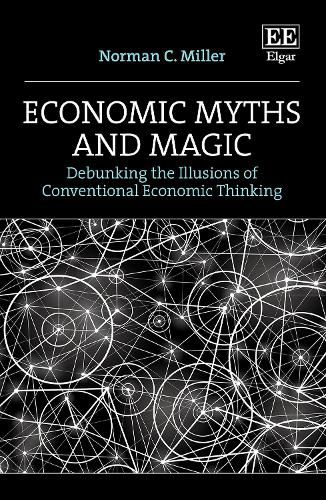Readings Newsletter
Become a Readings Member to make your shopping experience even easier.
Sign in or sign up for free!
You’re not far away from qualifying for FREE standard shipping within Australia
You’ve qualified for FREE standard shipping within Australia
The cart is loading…






This insightful and comprehensive book uses theory and empirical studies to debunk contemporary illusions about the functionality of economies and examines the phenomena of economic magic and economic black magic.
Norman C. Miller considers 11 economic myths, three of which are the theory that excessive imports reduce employment as firms are forced to downsize or shut down, that a more equal distribution of income kills incentives and reduces economic growth rates and the myth that a higher minimum wage always generates a net decrease in employment. Chapters examine the effects of advances in technology, poverty and income inequality, international trade, and trade deficits on employment and economic growth. The book concludes with discussions on three case studies demonstrating economic black magic, namely the Great Depression, the Great Recession, and the COVID-19 pandemic.
This creative and accessible book will be vital reading for students and scholars in economics and finance, the history of economic thought, methodology of economics, and political economy. It will also be beneficial for business owners, economists, finance practitioners, and social scientists, as well as citizens interested in the functioning of economies.
$9.00 standard shipping within Australia
FREE standard shipping within Australia for orders over $100.00
Express & International shipping calculated at checkout
This insightful and comprehensive book uses theory and empirical studies to debunk contemporary illusions about the functionality of economies and examines the phenomena of economic magic and economic black magic.
Norman C. Miller considers 11 economic myths, three of which are the theory that excessive imports reduce employment as firms are forced to downsize or shut down, that a more equal distribution of income kills incentives and reduces economic growth rates and the myth that a higher minimum wage always generates a net decrease in employment. Chapters examine the effects of advances in technology, poverty and income inequality, international trade, and trade deficits on employment and economic growth. The book concludes with discussions on three case studies demonstrating economic black magic, namely the Great Depression, the Great Recession, and the COVID-19 pandemic.
This creative and accessible book will be vital reading for students and scholars in economics and finance, the history of economic thought, methodology of economics, and political economy. It will also be beneficial for business owners, economists, finance practitioners, and social scientists, as well as citizens interested in the functioning of economies.